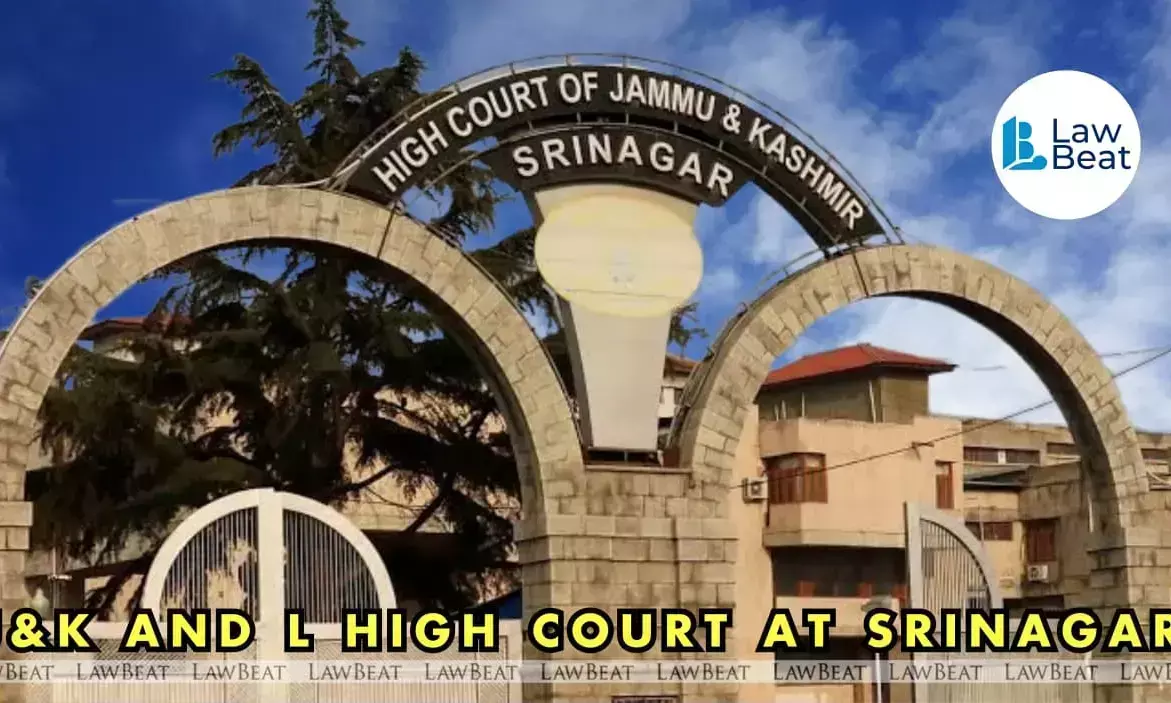Can You Legally Change Your Name in Academic Records? J&K and Ladakh HC Answers

J&K and Ladakh High Court Quashes Education Board’s Refusal To Record Name Change
The High Court of Jammu & Kashmir and Ladakh at Jammu has ruled that the right to change one’s name is a constitutionally protected facet of personal autonomy and freedom of expression, falling within the ambit of Articles 19(1)(a) and 21 of the Constitution.
Quashing the Jammu and Kashmir Board of School Education’s refusal to record a name change in academic certificates, the Court directed that the request of the petitioner be reconsidered in accordance with law and judicial precedents.
Justice Sanjay Dhar while allowing the petition, observed, "Since right to adopt or change name has been declared as a fundamental right, as such, Notification dated 06.02.1995 has to be interpreted in a manner so that it does not infringe the fundamental right of an individual who seeks to change his name. Thus, while reasonable restrictions in frequent changes of name may be read into aforesaid notification but it cannot be interpreted in a manner so as to put a blanket ban on change of name or particulars of an individual."
The petition was filed by Mohd Hassan, originally named Raj Wali, who had completed all requisite legal formalities to adopt his new name, including publication in the Gazette of India and updating statutory documents such as Aadhaar, PAN, passport, voter ID, driving licence and domicile certificate.
Despite this, when he sought a corresponding change in his educational certificates, the Board rejected his request by order dated 24 December, 2024.
Advocate Abid Khan, appearing for the petitioner, argued that the refusal violated the petitioner’s fundamental rights, stressing that the right to choose and change one’s name was intrinsic to the freedoms of identity and expression.
It was contended that statutory regulations or procedural limitations cannot override constitutional guarantees.
The Board, represented by Advocate B.S. Bali, defended its decision on two grounds: first, that under its regulations, only corrections sought within three years of certificate issuance could be entertained, and second, that there was no express provision for name changes beyond clerical or typographical corrections.
The Court rejected both grounds. It was noted that the limitation period relied upon by the Board applied only to corrections of errors such as misspellings or transcriptional mistakes, not to genuine cases of name change.
Importantly, the Court observed that identity through name is a crucial component of personal autonomy, and once the petitioner had lawfully changed his name through Gazette notification and public documents, authorities were bound to acknowledge the change.
In reaching its decision, the Court relied extensively on the Top Court’s judgment in Jigya Yadav v. CBSE (2021) 7 SCC 535, which held that individuals must have complete control over their names, and that authorities cannot disregard validly updated public documents like Aadhaar or Gazette notifications.
The Court also referred to supporting rulings of the High Courts of Allahabad, Kerala and Delhi, all affirming that the right to adopt or change one’s name is constitutionally protected under Articles 19(1)(a) and 21.
It was emphasised that while the Board may impose reasonable conditions to prevent misuse, such as requiring affidavits, indemnities, or public notices, it cannot impose blanket restrictions that negate fundamental rights.
The argument that the petitioner approached the Board after expiry of a three-year period was held to be misconceived, as that limitation applies to corrections, not wholesale changes in particulars like name, parentage or date of birth.
The Court held that once statutory documents like Aadhaar, PAN, passport, voter ID and domicile certificate reflected the new name, the Board could not ignore such records. Its refusal, therefore, amounted to arbitrary denial of a fundamental right.
The impugned order dated 24 December, 2024 was accordingly quashed.
The Court directed the Board to reconsider the petitioner’s request in light of the principles laid down in Jigya Yadav and other precedents, and if accepted, to issue fresh academic certificates reflecting the petitioner’s name as “Raj Wali alias Mohd Hassan” while ensuring safeguards against misuse.
By affirming that the right to change one’s name is a facet of constitutional freedoms, the judgment strengthens the recognition of identity as central to personal autonomy. It underscores that bureaucratic regulations cannot be wielded to restrict an individual’s right to be known by a name of their choice.
Case Title: Mohd Hassan v. UT of J&K & Ors.
Bench: Justice Sanjay Dhar
Date of Judgment: September 11, 2025
